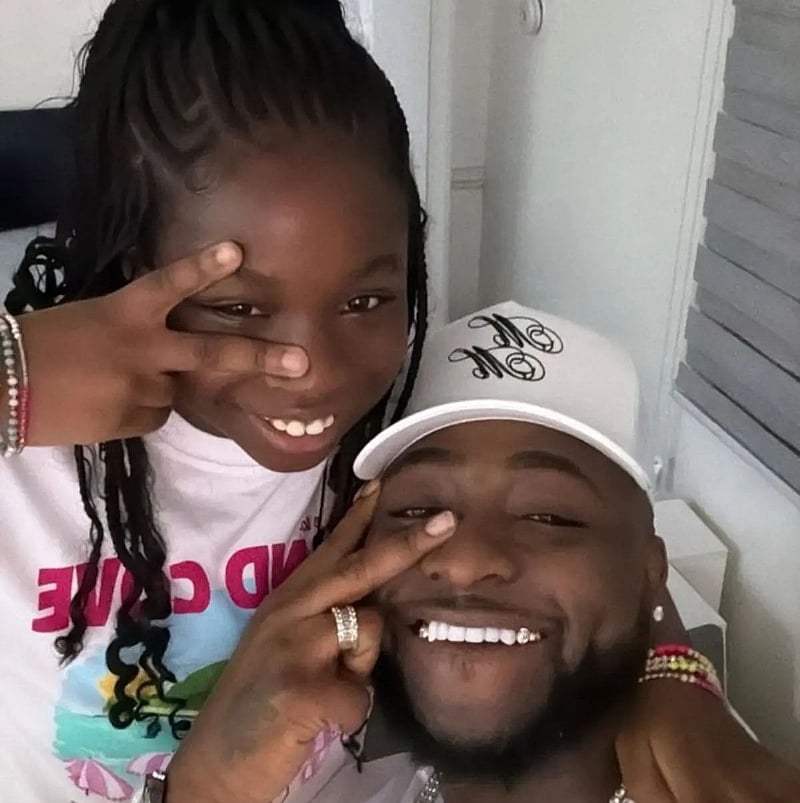The reunion of Nigerian music superstar Davido and his daughter, Imade Adeleke, has captured public attention, marking a heartwarming chapter in a complex and highly publicized custody dispute. This reconciliation, documented by Davido himself through a touching social media post, follows a period of estrangement and legal wrangling between the artist and Imade’s mother, Sophia Momodu. The shared photograph, showcasing a beaming Davido with his daughter, speaks volumes about the emotional significance of the moment for the singer, who proclaimed it the “best day of my life.” This seemingly simple declaration carries the weight of the preceding legal battle and the underlying tensions that had kept father and daughter apart. The reunion offers a glimmer of hope for a more amicable future for the family, although the underlying custody issues remain unresolved.
The custody battle between Davido and Sophia Momodu began in April 2024 when the singer filed a lawsuit seeking custody of Imade. Davido’s legal action alleged that Sophia had been denying him access to his daughter, effectively hindering his ability to fulfill his paternal role. This move formalized an already strained relationship between the former couple, transforming their private disagreements into a public legal confrontation. Davido’s decision to pursue legal action underscored the seriousness of the situation from his perspective, indicating his commitment to securing what he believed to be his rightful access to his child. The lawsuit set in motion a series of legal proceedings that would ultimately lead to attempts at mediation and, eventually, this poignant reunion.
Sophia Momodu responded to Davido’s lawsuit with a detailed 102-paragraph counter-affidavit, a lengthy and comprehensive legal document that laid out her side of the story. In her response, Sophia accused Davido of neglecting his paternal responsibilities following the end of their romantic relationship. Her detailed account painted a picture of a father who, in her view, had been absent and unsupportive. The counter-affidavit served as a powerful rebuttal to Davido’s claims, highlighting the deep divisions and conflicting narratives at the heart of the custody dispute. This document not only challenged Davido’s version of events but also underscored the complexity of the situation, suggesting a history of disagreements and misunderstandings between the two parents.
In an attempt to de-escalate the situation and find a resolution outside of the courtroom, the custody case was referred to Alternative Dispute Resolution (ADR). This process aimed to facilitate communication and negotiation between Davido and Sophia, providing a neutral platform for them to work towards a mutually acceptable agreement regarding Imade’s custody and care. ADR represented a less adversarial approach compared to traditional litigation, emphasizing collaboration and compromise in the pursuit of a solution that would serve the best interests of the child. While the details of the ADR process remain confidential, the recent reunion between Davido and Imade suggests that at least some progress has been made in bridging the gap between the parents.
While the reunion between Davido and Imade is a positive development, it is essential to acknowledge that the underlying custody issues remain unresolved. The legal proceedings are still ongoing, and the future custody arrangements for Imade are yet to be determined. The shared photograph, heartwarming as it may be, doesn’t necessarily signify the end of the legal battle. It represents a moment of reconciliation, a temporary ceasefire in a larger conflict. The long-term outcome will depend on the continued willingness of both Davido and Sophia to engage in constructive dialogue and find common ground in the best interests of their daughter.
This highly publicized custody battle highlights the complexities of co-parenting in the public eye. The intense scrutiny from the media and the public adds an additional layer of pressure to an already challenging situation. While the details of the case are specific to Davido and Sophia, the underlying themes of parental conflict, custody disputes, and the challenges of maintaining healthy relationships post-separation resonate with many families. The case serves as a reminder of the importance of prioritizing the well-being of the child amidst such disputes, striving for amicable solutions that foster a stable and nurturing environment for their growth and development. The reunion offers a glimmer of hope, but the journey towards a final resolution is far from over. The future will reveal whether this moment of connection can pave the way for a more harmonious and lasting co-parenting relationship.


